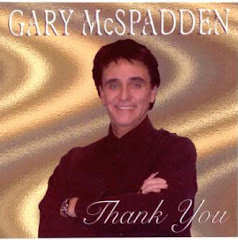...and now for something completely ridiculous.
http://blog.seattlepi.com/bookpatrol/archives/172538.asp?source=rss
"Twitterature" Has Book World Atwitter
Posted by Stephen J. Gertz
Two nineteen year old freshmen at the University of Chicago have scored a publishing deal for their book, Twitterature: The World's Greatest Books, Now Presented in Twenty Tweets or Less, to be released later this year by Penguin.
The students, Emmett Rensin and Alex Aciman, "had an epiphany," they declare on their website. "What, we asked, are the grandest ventures of our or any generation? And what, to give this a bit more focus, best expresses the souls of 21st century Americans?"
Their answer: that the two most important platforms of expression for their generation were literature and Twitter, and so they sought a way to marry the two.
"More than any other social networking tool, Twitter has refined to its purest form the instant-publishing, short-attention-span, all-digital-all-the-time, self-important age of info-deluge that is the essence of our contemporary world. So what could be better than to combine the two? After all, as great as the classics are, who has time to read those big, long books anymore?"
And so their "humorous retelling of works of great literature in Twitter format aimed at people aged between 18 and 35."
The intent is to metaphorically throw the works of Dante, Shakespeare, Stendhal, Joyce and JK Rowling into a log-chipper and have twenty 140-character Tweets for each come out the other end. The humor, presumably, will be added somewhere along the process, like carnauba wax in a car wash, then polished to hilarious sheen. Humor's a tricky thing; without meta-context the laughs get lost and there's no room for any sort of context in a Twitter tweet.
This is not exactly a fresh idea. In early May of 2009, the U.K. Telegraph reported that writer Tim Collins has a new book, The Little Book of Twitter, comprised of plot summaries of the great books and aimed at the Twitteratti, i.e.:
Ulysses:
jamesjoyce: Man walks around Dublin. We follow every minute detail of his day. He's probably overtweeting.
Great Expectations:
charlesdickens: Orphan given £££ by secret follower. He thinks it's @misshavisham but it turns out to be @magwitch
The Catcher in the Rye:
jdsalinger: Rich kid thinks everyone is fake except for his little sister. Has breakdown. @markchapman is now following @johnlennon
Pride and Prejudice:
janeaustin: Woman meets man called Darcy who seems horrible. He turns out to be nice really. They get together.
Bridget Jones's Diary:
helenfielding: RT @janeaustin Woman meets man called Darcy who seems horrible. He turns out to be nice really. They get together.
Okay, this is fun up to a point; I got paid to do this in an earlier incarnation: Ultimately, Collins' book is an exercise in writing what in TVLand-speak is called the "high-concept," a high-fallutin' way to describe the log line for the program/movie's TV Guide entry, nothing more. Writing "high-concepts" sounds a lot more significant than writing TV Guide teasers, along the lines of "sanitation engineer" for garbageman which, come to think of it, was exactly what I was doing.
Twitterature apprs 2B aimng at smthng mre &, hopefully, litteratwerps hu thk plot is bk wll B dsapntd.
If Rensin and Aciman can capture the soul of a book within its theme, plot, character, and milieu in twenty Tweets of 160 characters each or less, and include a wry slant, that would really be an accomplishment; high art, I think, and poetry of the highest rank.
I'm not counting on it.
Our Days Are Short
4 days ago








I'm not sure whether to laugh hysterically, or cry "sacrilege!"
ReplyDeleteI'm definitely laughing. Our son (now studying English at college) has a book of mini-classics, but they're longer than tweets. Would be a fascinating challenge, or dinner table game.
ReplyDelete